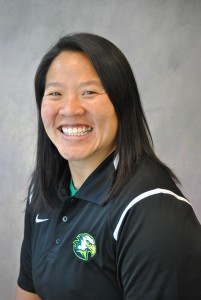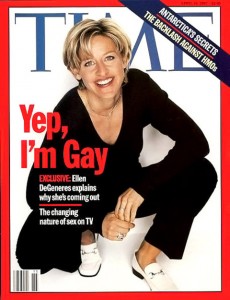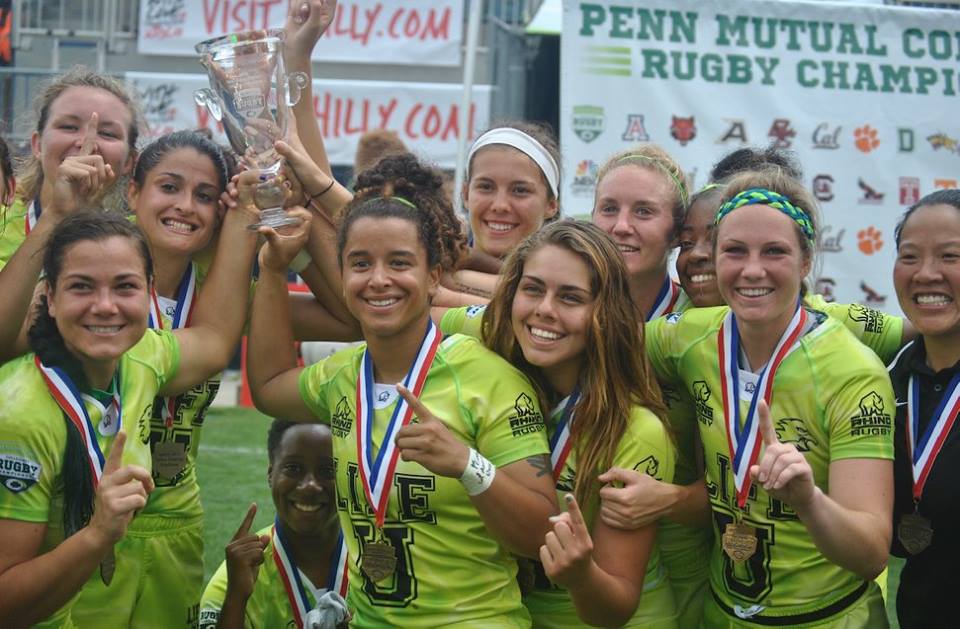Over the Memorial Day weekend, the women’s rugby team from Marietta’s Life University traveled to Cary, North Carolina to compete in the USA Rugby Collegiate Sevens tournament.
The women played in 5 matches over the course of 3 days to qualify for the championship game and ultimately won the tournament outright as USA Rugby Division 1 National Champions. The team went on to win the invitational Collegiate Rugby Championship the following weekend to finish their season strong with 24 wins and 1 loss.
 For part two of a three part feature story, we spoke to the team’s coach, Dr. Rosalind Chou, to find out what about the athletes most inspires her and makes her proud. The answer had almost nothing to do with their near undefeated season—and everything to do with their fight for equality. Click here to read part one.
For part two of a three part feature story, we spoke to the team’s coach, Dr. Rosalind Chou, to find out what about the athletes most inspires her and makes her proud. The answer had almost nothing to do with their near undefeated season—and everything to do with their fight for equality. Click here to read part one.
***
Coach Rosalind Chou grew up in Ocala, FL. Athletics have always been a central part of her life. When she was a student at Florida State University, she competed as a varsity athlete in softball, and played on the club rugby team.
She describes the sport of rugby as an “open community,” a safe haven where people were free to be themselves. But she says that wasn’t necessarily the case with other varsity level sports. When she was first starting out, there was still a lot of intolerance.
“Back then, it was really scary to be gay and out.”
 “When I was in college there was this unspoken rule within the varsity sport ranks,” Rosalind reflects. “Don’t ask, don’t tell. The gay coaches were in the closet, many of the gay athletes were in the closet. I would play alongside transgender and lesbian athletes—but no one ever talked about it.”
“When I was in college there was this unspoken rule within the varsity sport ranks,” Rosalind reflects. “Don’t ask, don’t tell. The gay coaches were in the closet, many of the gay athletes were in the closet. I would play alongside transgender and lesbian athletes—but no one ever talked about it.”
Rosalind says she distinctly remembers huddling around the TV with friends to watch the episode of Ellen when the lead character (played by the now legendary talk show host, Ellen DeGeneres) comes out as gay. This marked the first-time that a lead character would come out in the history of American television, and was coupled with Ellen’s personal, public coming out. Shortly thereafter, her show was cancelled.

That was in the late 1990s. Rosalind says, “Back then, it was really scary to be gay and out.”
But she says that she’s seen tremendous change in the past twenty years, both in sports and society at large, toward greater acceptance and tolerance for diversity and difference.
These are some of the very values that Rosalind, as a coach, and the athletic department at Life University more generally, seek to instill in their athletes. Rosalind says, “In our athletic program we talk about developing human beings. It’s not really about the results on the sports field. It’s about instilling principles and life skills that these young adults will take with them off the field.”
When the North Carolina legislature passed HB 2—a piece of legislation that overturns local non-discrimination protections in and blatantly targets transgender North Carolinians for undue scrutiny and discrimination—the Life University athletic department was swift to respond.
Discrimination is not a Life University value—we stand for inclusion.
To start, the Athletic Department issued a ban on all non-essential travel to the Tarheel state. Then, the rugby governing board issued a statement condemning the law.
On the one hand, Rosalind says, the Athletic Director, Dan Payne, wanted to reinforce to the athletes: Discrimination is not a Life University value—we stand for inclusion. On the other hand, the department wanted to ensure it wasn’t putting any of the athletes in harms way by sending them to a state that is openly hostile to LGBT people.
Rosalind praises Payne’s judgment saying, “He truly seeks to use sport as a vehicle to make the world a better place. We all knew—opposing HB 2 might not necessarily be a popular decision, but he took a stand anyway, on the principle of the matter.”
“Transgender people, particularly transgender people of color have some of the highest suicide rates and are some of the most at-risk of being targets of hate crimes. With anti-transgender laws like HB 2 on the books, it’s really important that young people stand up for what’s right and to fight for equality.”
While Coach Chou ultimately supports the Athletic Department’s stance, she also knew that the women’s rugby team had a tournament in Cary, NC—and after a winning season, it was important that they be allowed to compete if they wanted to.
“So—we turned the decision over to the team.”
Rosalind says it was hearing the team’s passion about taking a stand against HB 2 and anti-LGBT discrimination that made her most proud.
“It was a no-brainer for them,” she says. “They immediately recognized HB 2 as exclusionary and saw that it allowed for unequal treatment. It wasn’t even up for debate.
“To see a group of young women, comfortable and confident in their skin; whole-heartedly committed to and willing to fight for the belief that people deserve equal treatment—who wouldn’t be proud of that?”
***
Ultimately, the women’s rugby team decided that they wanted and needed to compete. And they committed themselves to volunteering and helping to raise awareness about LGBT issues and the need for equal protections under the law.
For Coach Chou, while she’s witnessed incredible progress in the past twenty years, she knows there’s still work to be done.
“Transgender people, particularly transgender people of color have some of the highest suicide rates and are some of the most at-risk of being targets of hate crimes,” she says. “With anti-transgender laws like HB 2 on the books, it’s really important that young people continue to stand up for what’s right and to fight for equality.”
Rosalind says she hopes to see LGBT-inclusive non-discrimination laws pass in Georgia in the coming years. Without uniform federal protections, and no statewide civil rights laws, gay and transgender Georgians remain at-risk for unfair treatment and potential harm.
While she’s disappointed equal rights for LGBT people is still a subject of debate, Rosalind says she’s fortunate to work with the women’s rugby team: “They support each other and love each other. Regardless of whether they win or lose—for that, I’m proud.”

***
Stay tuned for part three of this series, when we link back up with the Life University women’s rugby players to hear about their big win and major takeaways from their tournament weekend in North Carolina.
SHARE THIS STORY


 @GeorgiaUnites
@GeorgiaUnites